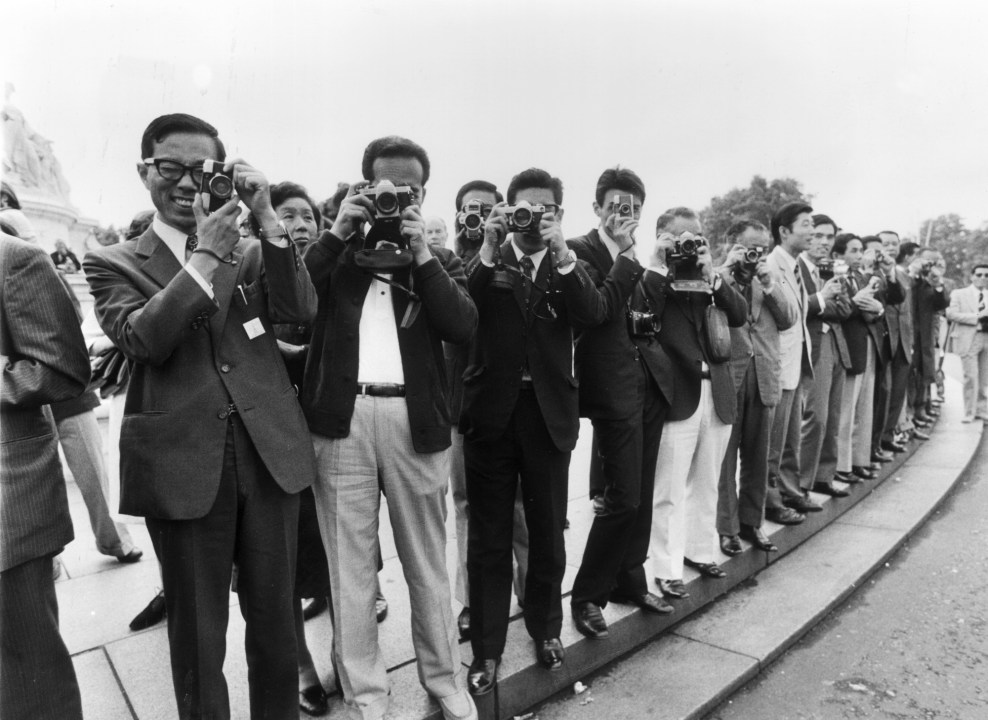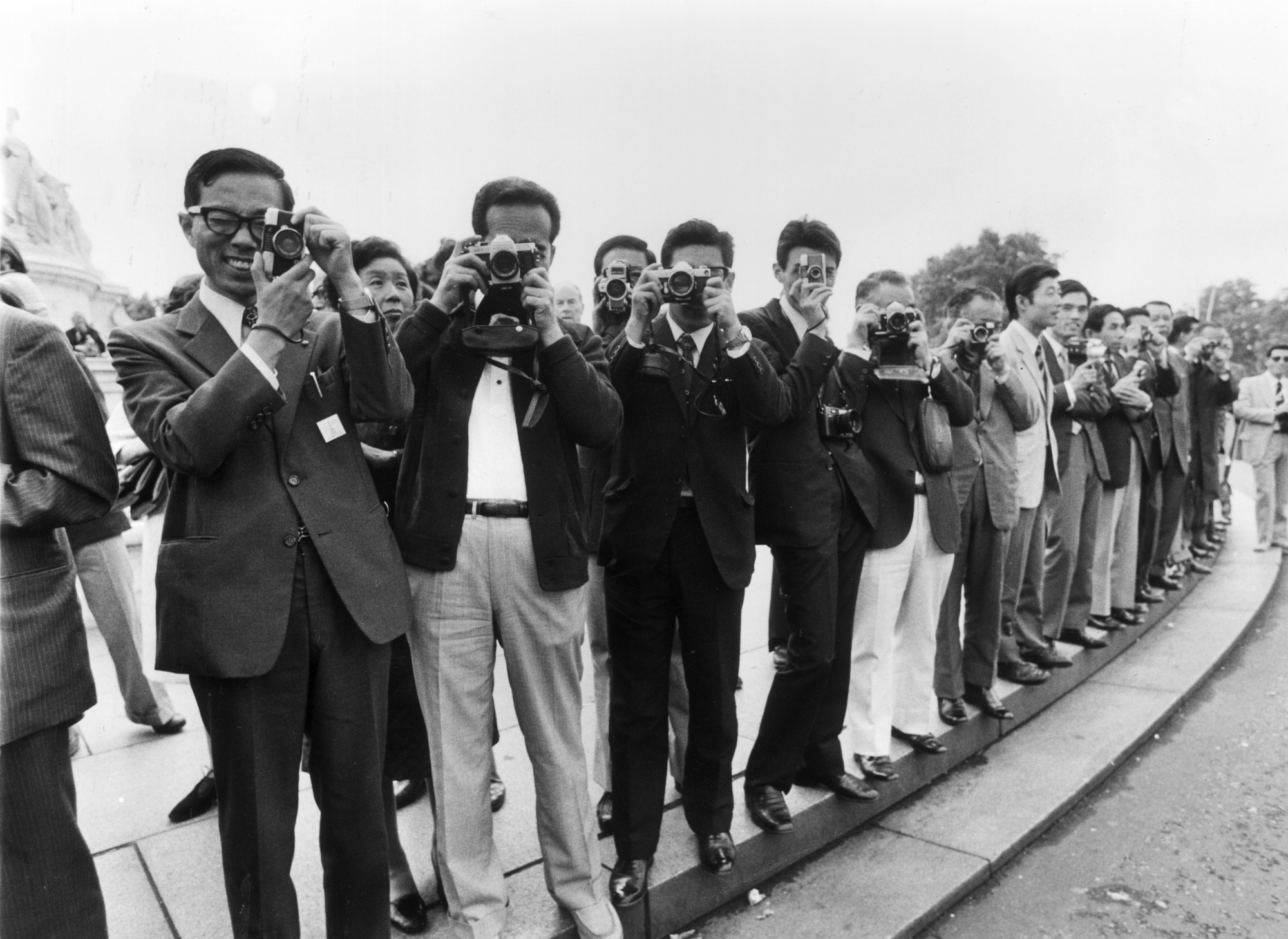Is the Japanese tourist, for so long in good numbers a welcome and reliable fixture at our most famous tourist spots, now in serious decline? The number of Japanese travelling abroad is still well down on pre-Covid times and with government data just released revealing that fewer and fewer Japanese even hold a passport, the slump could be prolonged, which would be disastrous for the UK tourism and hospitality industry.
According to the Japanese government, only around 17 per cent of Japanese adults currently hold a passport, a significantly lower rate than the US and UK (50 and 85 per cent respectively). It seems the Japanese are less and less inclined to travel. The reasons are not difficult to identify but quite hard to address. They fall into two categories:medical (or perhaps psychological) and financial.
According to the Japanese government, only around 17 per cent of Japanese adults currently hold a passport, a significantly lower rate than the US and UK
The first is the legacy of the Covid restrictions that for a while returned Japan to its exclusionary Sakoku period of splendid isolation. The physical barriers are gone but the mental ones remain. A walk around central Tokyo will reveal a considerable percentage of people still wearing masks, a habit taken up around five years ago and now, it seems, hard to kick (‘What’s with all the masks?’ was the first observation of a colleague who visited me recently). It doesn’t take much to spook the almost pathologically risk averse Japanese and the belief, especially prevalent amongst some of the old (who have most of the money) that foreign travel means the risk of exposure to deadly pathogens, seems unshakeable. In a 2023 survey, a third of Japanese cited Covid as a reason for never travelling again.
It’s not just the old, though. Younger people have been put off too. According to the Japanese Association of Travel Agents, three years of border restrictions significantly dampened the wanderlust of the young. The millions who should have been catching the travel bug at an impressionable age have been led to believe that travel is a risky, expensive and selfish endeavour. That last refers to the societal disapproval Covid wrought: bring back some infection along with your souvenirs and you face the risk of the ultimate Japanese nightmare, ostracism.
Then there is the ‘weak’ Yen. This has been touted as a reason for the boom in inbound foreigners and the decline in outbound Japanese. But it is perhaps somewhat overstated, a bit of a lazy cliche. In my 25 years in Japan I’ve known the currency to be significantly weaker than it is now, so perhaps it is more the depressing economic sclerosis of Japan and higher prices than the actual exchange rate that is the real problem. The spectre of unemployment (Nissan laid off 20,000 employees recently) looms large.
Whatever the causes, the consequences of this gradual withdrawal are serious. Numbers are now down so much in the Cotswolds (80 per cent) that the region’s tourist board are said to be in ‘panic mode’. Japanese tourists are spending an estimated £12 million less than a just a few years ago according to the ONS. Guided tours tailored for Japanese tour companies and etiquette lessons have been organised in an attempt to arrest the decline. It had better work, as it’s not clear what else will. No one in Japan has heard of Jeremy Clarkson (Clarkson’s Farm doesn’t really translate).
The Japanese government is concerned by the increasingly stay at home proclivities of its citizens, as it has long promoted efforts to better internationalise the workforce. And airlines are worried about what is becoming an increasingly lopsided destination (full planes into Japan, half full out).
There has been talk of government action and incentives such as free passports for the young and an uncapping of the limits placed on expenses for class trips, though if previous attempts by the Japanese government to influence lifestyle choices are anything to go by (boosting the birth rate, cutting long working hours) it is unlikely to have a great effect. The Japanese can be stubbornly un-nudgeable.
The real answer may lay elsewhere, with the service providers. Arguably the international hospitality industry has taken Japan tourists for granted for years. A recent example of this took place at the Osaka Expo where at the British pavilion visitors were asked to hand over 5000 yen (£25) for ‘Afternoon tea’ which consisted of two small rather miserable looking scones and a paper cup with a tea bag. After criticism went viral, the British hosts apologised and upgraded the service.
A little more care and attention then, a little courting, might be in order. There are signs this is understood by some in the sector. The Japanese themed Prince Akatoki hotel in London with its focus on hospitality, atmosphere and well-ness is one example; the proliferation of Japanese street food (onigiri) outlets another. And if Rachel Reeves could be induced to drop the utterly self-defeating tourist tax (a big issue here in Japan), we might be getting somewhere.
But I definitely won’t be holding my breath on that one.









Comments